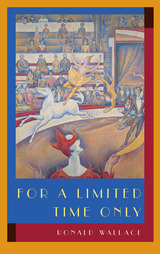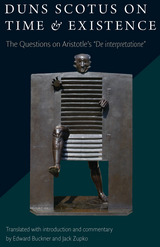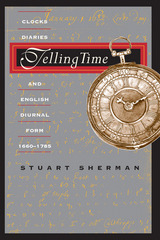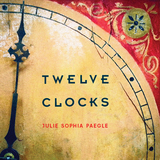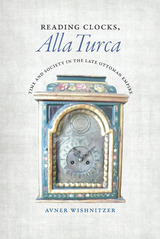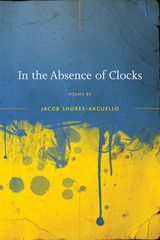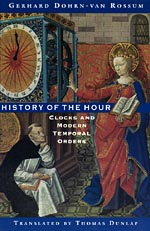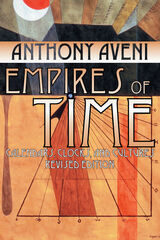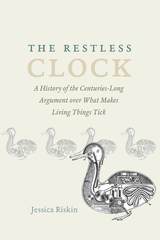ClocksCollection by Cassandra Verhaegen (10 items)Tick tock. Includes the following tags:
Absence, American, American Life, Archaeoastronomy, Aristotle, Aveni, Anthony, Calendars, Clocks, Clocks and watches, Dunlap, Thomas, Early modern, 1500-1700, Empires, English prose literature, Existence, For, Hispanic & Latino, History, Humanism, Language and languages, Life (Biology), Literary form, Literature and technology, Logic, McCrossen, Alexis, Mechanism (Philosophy), Mind & Body, Paegle, Julie Sophia, Poetry, Riskin, Jessica, Society, Systems and standards, Time, Time measurements, Travel writing, Turkey, Turkey & Ottoman Empire, Vitalism, Wallace, Ronald, Watches, Women Authors
See More
|
For a Limited Time Only
by Ronald Wallace
University of Pittsburgh Press, 2008
For a Limited TIme Only, Ronald Wallace's eighth collection of poems, is perhaps his darkest and most meditative to date, focusing his experiences with illness, old age, and mortality; his father-in-law's death after a long bout with Alzheimer's; his step-father's death after a painful struggle with esophageal cancer, his own bout with prostate cancer. These personal experiences form the core of the first three sections of the book, but are mediated by theological and philosophical speculations that find further voice in the character of a “Mr. Grim,” whose angry, self-pitying, gruff, comic, self-depreciating, nostalgic, defeated, and hopeful riffs on the human condition provide a bridge to the affirmative, often comic, close. In the final two sections, in poems in praise of his dentist, his barber, his wife, his grandparents, the morpheme, Mr. Malaprop, Pluto, tattoos, hamburger heaven, sex talk, and poetry itself, Wallace once again proves the resilience of hope and humor in what is, for him, finally a world of wonders.
1
|
Duns Scotus on Time and Existence
by John Duns Scotus
translated by Edward Buckner and Jack Zupko Catholic University of America Press, 2014
An English translation of John Duns Scotus's The Questions on Aristotle's "De Interpretatione" including an extensive commentary on some of Scotus's more difficult ideas.
See More
2
|
Telling Time
by Stuart Sherman
University of Chicago Press, 1997
A revolution in clock technology in England during the 1660s allowed people to measure time more accurately, attend to it more minutely, and possess it more privately than previously imaginable. In Telling Time, Stuart Sherman argues that innovations in prose emerged simultaneously with this technological breakthrough, enabling authors to recount the new kind of time by which England was learning to live and work. Through brilliant readings of Samuel Pepys's diary, Joseph Addison and Richard Steele's daily Spectator, the travel writings of Samuel Johnson and James Boswell, and the novels of Daniel Defoe and Frances Burney, Sherman traces the development of a new way of counting time in prose—the diurnal structure of consecutively dated installments—within the cultural context of the daily institutions which gave it form and motion. Telling Time is not only a major accomplishment for seventeenth- and eighteenth-century literary studies, but it also makes important contributions to current discourse in cultural studies.
3
|
Twelve Clocks
by Julie Sophia Paegle
University of Arizona Press, 2015
From the fall of Troy recorded at the beginning of Western poetry to the ongoing mass extinction of species, Twelve Clocks meditates on the temporality of loss across the many scales of our experience and knowledge. Framed by central images of beginnings and ends, this collection searches six cities and intervals of time for the measures of loss, labor, and care. Through formal innovations derived from the second, the minute, the hour, etc., and the methods of their measure, these poems move from the stark violence of Homer’s tale to the terrible precision and power of the atomic age.
As the reader is transported from Las Vegas to Argentina to the landscapes of Ancient Greek epic poetry, Twelve Clocks explores the connections between song, ancestry, family, loss, and time. If the imagery of the collection hints Troy might be an image of the wrecked Argentine economy under neoliberal economics, the poems eschew the abstractions of politics in favor of a vivid and sensuous lyricism. The interconnectivity of the poems in Twelve Clocks is mirrored by different elements’ transcendence throughout the collection. The clock that goes missing in one poem turns up in another, characters vanish and reappear, matter destroyed in one poem reoccurs as energy in another, and then matter and energy both go missing. Taken together, the poems confront the literary legacy of Western poetic tradition and our shared future.
4
|
Reading Clocks, Alla Turca
by Avner Wishnitzer
University of Chicago Press, 2015
Up until the end of the eighteenth century, the way Ottomans used their clocks conformed to the inner logic of their own temporal culture. However, this began to change rather dramatically during the nineteenth century, as the Ottoman Empire was increasingly assimilated into the European-dominated global economy and the project of modern state building began to gather momentum. In Reading Clocks, Alla Turca, Avner Wishnitzer unravels the complexity of Ottoman temporal culture and for the first time tells the story of its transformation. He explains that in their attempt to attain better surveillance capabilities and higher levels of regularity and efficiency, various organs of the reforming Ottoman state developed elaborate temporal constructs in which clocks played an increasingly important role. As the reform movement spread beyond the government apparatus, emerging groups of officers, bureaucrats, and urban professionals incorporated novel time-related ideas, values, and behaviors into their self-consciously “modern” outlook and lifestyle. Acculturated in the highly regimented environment of schools and barracks, they came to identify efficiency and temporal regularity with progress and the former temporal patterns with the old political order. Drawing on a wealth of archival and literary sources, Wishnitzer’s original and highly important work presents the shifting culture of time as an arena in which Ottoman social groups competed for legitimacy and a medium through which the very concept of modernity was defined. Reading Clocks, Alla Turca breaks new ground in the study of the Middle East and presents us with a new understanding of the relationship between time and modernity.
5
|
In the Absence of Clocks
by Jacob Shores-Arguello
Southern Illinois University Press, 2012
In the fascinating collection of poems, In the Absence of Clocks, poet Jacob Shores-Arguello takes readers on an illuminating voyage through Ukrainian life. Set during the turmoil of the 2004 Orange Revolution, when the country trembled in the wake of political corruption and public outrage, Shores-Arguello’s lyrics of a revolution provide a glimpse into a world at once foreign and familiar. Throughout the collection are the iconic images and myriad juxtapositions of Ukrainian life. wolves howling in the snow and bakers pounding early-morning loaves of bread; farmlands and cities alike rocked by political transformation; gypsies and protesters; opulent images of Byzantium and the concrete ghosts of Chernobyl—all meet here at the crossroads of East and West, democracy and communism, reality and mythology. As the narrator travels across the Ukraine, he does much more than cross the distances between Horlivka and Odessa or Kiev and the Black Sea. As the tides of change swirl around him, they mirror his own search for a cultural identity and history.
6
|
Marking Modern Times
by Alexis McCrossen
University of Chicago Press, 2013
The public spaces and buildings of the United States are home to many thousands of timepieces—bells, time balls, and clock faces—that tower over urban streets, peek out from lobbies, and gleam in store windows. And in the streets and squares beneath them, men, women, and children wear wristwatches of all kinds. Americans have decorated their homes with clocks and included them in their poetry, sermons, stories, and songs. And as political instruments, social tools, and cultural symbols, these personal and public timekeepers have enjoyed a broad currency in art, life, and culture. In Marking Modern Times, Alexis McCrossen relates how the American preoccupation with time led people from across social classes to acquire watches and clocks. While noting the difficulties in regulating and synchronizing so many timepieces, McCrossen expands our understanding of the development of modern time discipline, delving into the ways we have standardized time and describing how timekeepers have served as political, social, and cultural tools in a society that doesn’t merely value time but regards access to time as a natural-born right, a privilege of being an American.
7
|
by Gerhard Dohrn-van Rossum and Thomas Dunlap
University of Chicago Press
In this sweeping study of the organization of time, Dohrn-van Rossum offers fresh insight into the history of the mechanical clock and its influence on European society from the late Middle Ages to the industrial revolution. Detailing the clock's effects on social activity, he presents a vivid picture of a society regulated by the precise measurement of identical hours. "In tracing the evolution of time consciousness with scholarship and skill . . . Dohrn-van Rossum evokes the many ways that the small moments of life have come to be reckoned with the passage of time."—Dava Sobel, Civilization "Dohrn-van Rossum paints a highly nuanced picture of time's conquest of modern life."—Steven Lagerfeld, Wilson Quarterly "This book is definitive in showing the clock's pervasive influence over European society."—Virginia Quarterly Review "[A] delightful, excellently translated history."—Choice "Dohrn-van Rossum has produced a persuasive and brilliantly documented new understanding of how modern time-consciousness arose."—Owen Gingerich, Nature
8
|
Empires of Time
by Anthony Aveni
University Press of Colorado, 2002
"Aveni . . . explores the interplay of culture and time in this edifying and readable cross-cultural study of timekeeping through the ages."
—The Sciences
9
|
The Restless Clock
by Jessica Riskin
University of Chicago Press, 2016
Today, a scientific explanation is not meant to ascribe agency to natural phenomena: we would not say a rock falls because it seeks the center of the earth. Even for living things, in the natural sciences and often in the social sciences, the same is true. A modern botanist would not say that plants pursue sunlight. This has not always been the case, nor, perhaps, was it inevitable. Since the seventeenth century, many thinkers have made agency, in various forms, central to science. The Restless Clock examines the history of this principle, banning agency, in the life sciences. It also tells the story of dissenters embracing the opposite idea: that agency is essential to nature. The story begins with the automata of early modern Europe, as models for the new science of living things, and traces questions of science and agency through Descartes, Leibniz, Lamarck, and Darwin, among many others. Mechanist science, Jessica Riskin shows, had an associated theology: the argument from design, which found evidence for a designer in the mechanisms of nature. Rejecting such appeals to a supernatural God, the dissenters sought to naturalize agency rather than outsourcing it to a “divine engineer.” Their model cast living things not as passive but as active, self-making machines. The conflict between passive- and active-mechanist approaches maintains a subterranean life in current science, shaping debates in fields such as evolutionary biology, cognitive science, and artificial intelligence. This history promises not only to inform such debates, but also our sense of the possibilities for what it means to engage in science—and even what it means to be alive.
10
|
| Click here to go to the beginning. | ||||||||||
